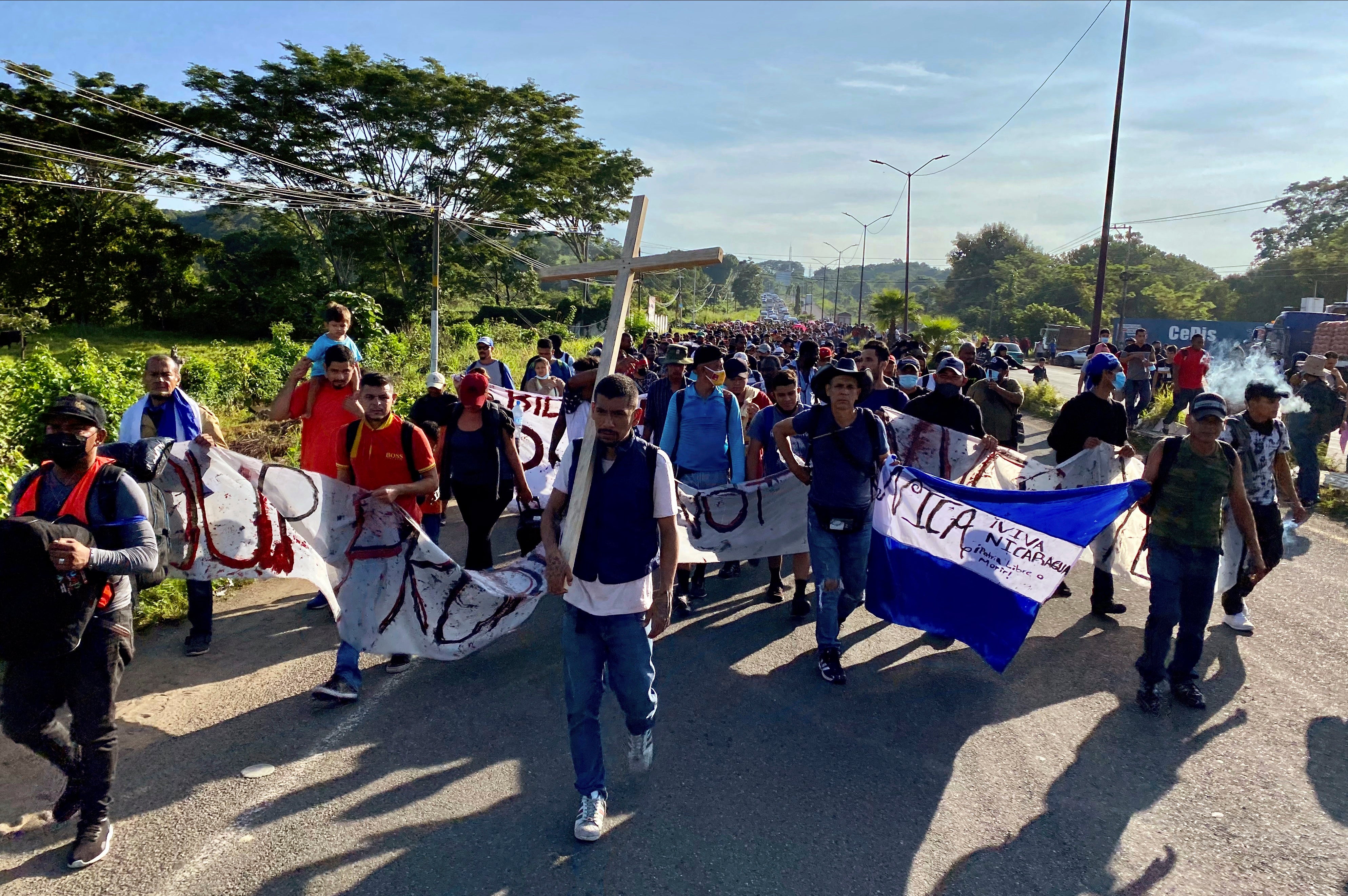Over 2,000 migrants march out of southern city in Mexico
Over 2,000 migrants, mainly Central Americans, have begun walking out of a city in southern Mexico where they have essentially been trapped

Your support helps us to tell the story
From reproductive rights to climate change to Big Tech, The Independent is on the ground when the story is developing. Whether it's investigating the financials of Elon Musk's pro-Trump PAC or producing our latest documentary, 'The A Word', which shines a light on the American women fighting for reproductive rights, we know how important it is to parse out the facts from the messaging.
At such a critical moment in US history, we need reporters on the ground. Your donation allows us to keep sending journalists to speak to both sides of the story.
The Independent is trusted by Americans across the entire political spectrum. And unlike many other quality news outlets, we choose not to lock Americans out of our reporting and analysis with paywalls. We believe quality journalism should be available to everyone, paid for by those who can afford it.
Your support makes all the difference.Over 2,000 migrants, mainly Central Americans, began walking out of a city in southern Mexico on Saturday where they have essentially been trapped.
The migrants walked along a highway leading west and north toward the U.S. border, and pushed past a line of state police who were trying to stop them.
There were minor scuffles, but the migrants continued on their way. Police immigration agents and National Guard have broken up smaller attempts at similar breakouts earlier this year.
Tens of thousands of migrants from Honduras El Salvador and Haiti have been waiting in the southern city of Tapachula for refugee or asylum papers that might allow them to travel, but have grown tired of delays in the process.
Unlike previous marches, the one that started Saturday from Tapachula did not include as many Haitian migrants, thousands of whom reached the U.S. border around Del Rio, Texas in September.
In August, National Guard troops in riot gear blocked several hundred Haitians, Cubans and Central Americans who set out walking on a highway from Tapachula.
Mexico requires migrants applying for humanitarian visas or asylum to remain in the border state of Chiapas, next to Guatemala, for their cases to be processed.
In January, a larger caravan of migrants tried to leave Honduras but was blocked from crossing Guatemala.
The marches are reminiscent, but nowhere near as large, as the migrant caravans that crossed Mexico in 2018 and 2019.